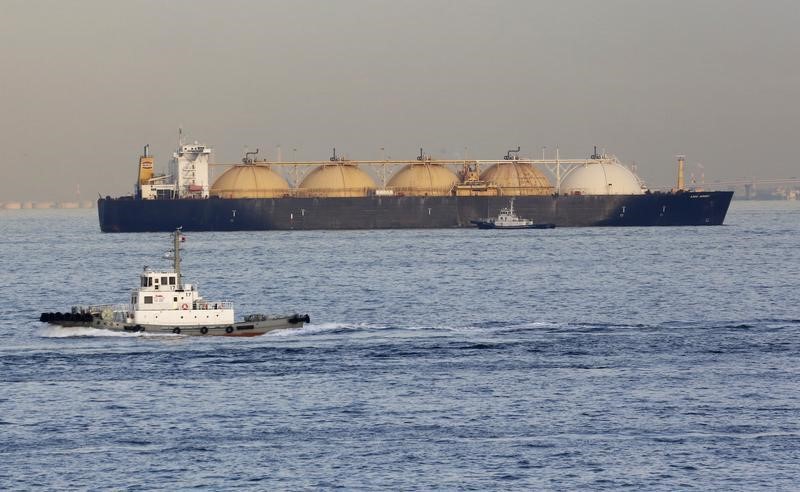By Sonali Paul
MELBOURNE, July 2 (Reuters) - Plans to import liquefied natural gas (LNG) to Australia, the world's second largest LNG exporter, could help cap soaring local gas prices, although the economics might not work, the Australian government said on Monday.
Over the past two years, four projects to import LNG have been proposed following the opening of three new LNG export plants on the east coast that have sucked gas out of the southeastern market and nearly tripled wholesale gas prices.
The Australian energy market operator recently wound back a forecast for a near-term deficit, saying it no longer expects a gas shortfall in southeastern Australia before 2030 thanks to expected new production and government pressure on LNG exporters to boost local supply. LNG import plans are advancing and could still be justified as gas produced in Queensland state is expensive, piping it to the south where the gas is needed is costly, and LNG from the Asian spot market could be cheaper, the Department of Industry said in a report released on Monday.
"While there are challenges to LNG imports into Australia's east coast gas market, there are also reasons to think that proposals for an import terminal may go ahead," it said in its quarterly Resources and Energy report.
The report said the main challenges will be to find cheap LNG beyond 2022, when demand is expected to start outstripping supply, and to line up enough gas demand to underpin import projects.
The report found that U.S. gas at around current prices could be delivered to Asia for $8.00 per MMbtu, or A$10.10 per gigajoule (GJ), roughly in line with current gas prices for industrial users.
However regasification, including capital costs, would add between A$1.30-A$2.60 per GJ to the cost.
The country's no.2 energy retailer AGL Energy AGL.AX has the most advanced plans, having secured a jetty to park a floating storage and regasification unit (FSRU). It aims to start importing by 2021.
ExxonMobil Corp XOM.N , the dominant supplier into the southeast market, recently confirmed it is considering importing LNG, while a consortium involving Japan's JERA is looking to start imports from 2020.
